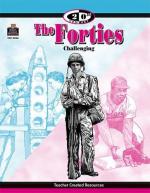|
This section contains 2,950 words (approx. 10 pages at 300 words per page) |

|
Jim Crow.
Since before the turn of the century in the South, black Americans had been relegated to the status of second-class citizens, denied by law and legal subterfuge fundamental civil rights such as the right to vote, the right to free assembly, the right to freedom of speech, and the right to due legal process. The system, known commonly as Jim Crow, had a dubious standing in the law. Since the passage of the Thirteenth, Fourteenth, and Fifteenth Amendments to the Constitution after the Civil War, blacks were entitled to the same legal protections as white citizens. A series of late-nineteenth century Supreme Court interpretations of these amendments, however, reduced the scope of protections. The most important of these decisions was Plessy v. Ferguson (1896), which interpreted the Fourteenth Amendment in such a manner that it established the legal foundation for Jim Crow...
|
This section contains 2,950 words (approx. 10 pages at 300 words per page) |

|




